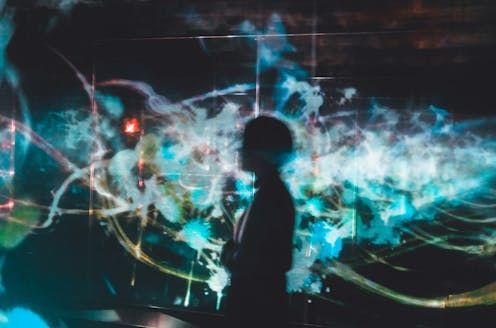What toilet paper and game shows can teach us about the spread of epidemics
- Written by Matthew Ryan, Postdoctoral CERC Fellow, CSIRO

How can we explain and predict human behaviour? Are mathematics and probability up to the task, or are humans too complex and irrational?
Often, people’s actions take us by surprise, particularly when they seem irrational. Take the COVID pandemic: one thing nobody saw coming was a rush on toilet paper that left supermarket shelves bare in many countries.
But by combining ideas from mathematics, economics and behavioural science, researchers were eventually able to make mathematical models of how panic spreads between people[1], which made sense of the toilet paper panic.
In new research[2] published in the Journal of the Royal Society Interface, we have taken a similar approach to the spread of disease – and showed that human reactions to the spread of disease can be as important as the behaviour of the disease itself when it comes to determining how an outbreak develops.
The power of context
One thing we know is that context can shape people’s behaviour in surprising ways. A nightly example of this is the popular TV game show Deal or No Deal, in which contestants regularly turn down offers of free money because they hope they will get a larger sum later.
If you carry out a rational calculation of the probabilities, most of the time the contestant’s “best” move is to accept the offer. But in practice, people often turn down a reasonable offer and hold out for a tiny chance at the big bucks.
Would a person refuse $5,000 if they were offered it in any other context? In this situation, straightforward maths can’t predict how people will behave.
The science of irrationality
What if we go beyond maths? Behavioural science has much to say about what drives people to take specific actions.
In this case, it might suggest people behave more reasonably if they set a realistic goal (such as getting $5,000) and position the goal in a powerful motivational context (such as planning to use the money to pay for a holiday).
Yet time and again even people with clear, achievable goals are swept up by emotion and context. At the right time and place, they will believe that luck is with them and refuse a $5,000 offer in the hope of something bigger.
Nevertheless, researchers have found ways to understand the behaviour of Deal or No Deal contestants[3] by combining ideas from mathematics, economics and the study of behaviour around risky choices.
In essence, the researchers found contestants’ decisions are “path-dependent”. This means their choice to accept a bank offer depends not only on their goal and the odds, but also the choices they have already made.
Group behaviours
Deal or No Deal, of course, is largely about individuals making decisions in a certain context. But when we’re trying to understand the spread of disease, we’re interested in how whole groups of people behave.
This is the realm of social psychology, where group behaviours and attitudes can influence individual actions. In some ways this makes groups easier to predict, and it’s where combining mathematics and behavioural science really starts to produce results.
Although some mass behaviours at the start of the COVID pandemic were highly visible – like panic-buying toilet paper – others were not. Mobility data from Google[4] showed people were choosing to limit their own movement, for example, before any mandated restrictions were in place.
Feedback loops
Fear and perceived risk can promote self-preservation through positive mass behaviours. For example, as more sickness appears in the community, people are more likely to act to prevent themselves getting sick.
These actions in turn have a direct impact on the spread of the disease, which further affects human behaviour, and so on. Many mathematical models of how diseases spread have failed to take this feedback loop into account.
Our new study is a step toward combining population disease spread modelling with mass behaviour modelling, aimed at understanding the links between behaviour and infection.
Our framework accounts for dynamic and self-driven protective health behaviours in the presence of an infectious disease. This puts us in a better position to make informed choices and policy recommendations for future epidemics.
Notably, our approach allows us to understand how mass behaviours influence how great a burden the disease will impose on the population in the long term. There is still much work to develop in this area.
To better understand human behaviour from a mathematical perspective, we will need better data around human choices in the presence of an infectious disease. This lets us pick out patterns that can be used for prediction.
Predicting behaviour
So, to come back to the question: can we predict human behaviour? Well, it depends. Many factors contribute to our choices: emotion, context, risk perception, social observation, fear, excitement.
Understanding which of these factors to explore with mathematics is no easy feat. However, when society faces so many challenges related to changes in mass behaviour – from infectious diseases to climate change – using mathematics to describe and predict patterns is a powerful tool.
But no single discipline can provide the answer to global challenges which need changes in human behaviour at scale. We will need more interdisciplinary teams to achieve meaningful impacts.
References
- ^ how panic spreads between people (www.frontiersin.org)
- ^ new research (royalsocietypublishing.org)
- ^ the behaviour of Deal or No Deal contestants (www.aeaweb.org)
- ^ Mobility data from Google (ourworldindata.org)

















